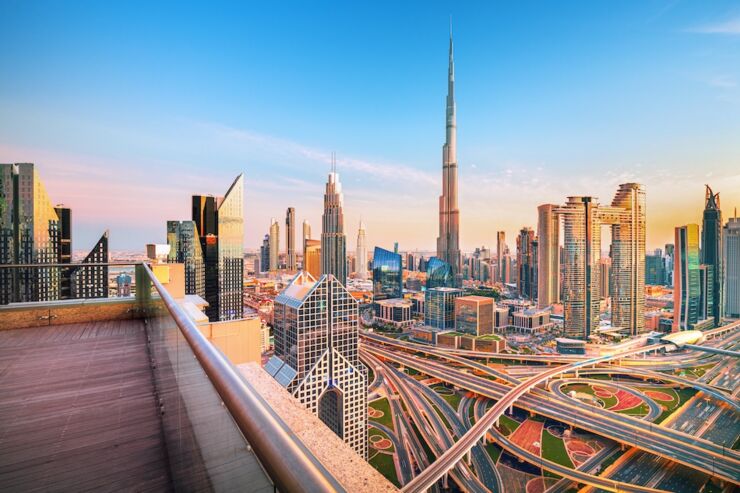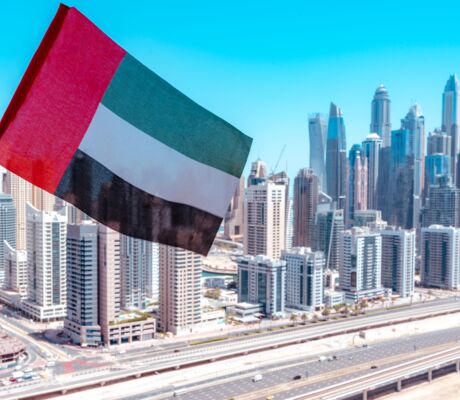Dubai is currently in the spotlight for foreign property investors looking to make savvy real estate investments given the high demand in the Emirate for rental property and its attractive rental yields. Expats too, are getting a look in with more and more expats that are permanent residents in Dubai now making the move to buying property too. So why is Dubai an emerging property hotspot and what do foreign property investors and expats looking to buy a home need to know about Dubai mortgages?
Rental Yields
Dubai rental yields are some of the best in the world at the moment, propelled by strong demand and a lack of stock, with averages expected to be about 6.3% in 2023. Dubai’s competitive fiscal landscape, the relative lack of property ownership restrictions and its easy access to finance means that more and more foreign nationals are exploring buying a home or investment property in the Emirate.
Where Can Foreign Nationals Buy Property In Dubai?
A shrewd operator, Dubai’s government has long seen and seized the opportunities and benefits of facilitating foreign property investment in the Emirate. As a result, there are relatively few restrictions on where non-resident investors can buy property in Dubai.
Foreigners can purchase property and then go on to rent it in what are known as freehold areas – these are also some of the most popular and sought-after areas of the Emirate. Freehold areas include the Dubai Marina, Jumeirah Lakes Towers, Downtown Dubai, Business Bay, Palm Jumeirah and the Emirates Hills. Within these areas there is no restriction on the type of residential property you can own as a foreign national, opening the way for you to own and rent flats or larger properties like villas.
Enness' Dubai Mortgage Offering
Enness brokers Dubai mortgages for foreign investors and expats looking to purchase high-value property in Dubai.
We can arrange finance for:
- Dubai expat mortgages
- Buy-to-let mortgages for foreign nationals
- Trophy property investments
- Holiday homes
- Borrowers that are good candidates for a mortgage but who have complex personal or financial situations that make accessing a mortgage complex
Dubai Mortgages
More and more players are moving into the Dubai property market, which means there is plenty of choice when it comes to mortgage products and lenders. Most lenders will offer mortgages to both expats living in Dubai and non-resident investors, although navigating the mortgage market can be challenging, especially as lenders will require lots of information and paperwork.
Sometimes documents will need to be presented in a certain way to give lenders comfort, especially if the information relating to your credit history, income, source of wealth or liquidity is issued in another country and isn’t in the standard format lenders are used to. Lenders in Dubai are relatively formulaic in their approach, and deals can easily fall through if they don’t see exactly what they want in the format they want it. Working with a broker that can explain context, give more clarity and detail your situation will streamline the application process considerably.
Lenders tend to approach any financing for a foreign national with caution. They may offer you a lower loan-to-value (LTV) mortgage than you’d get if you worked with a specialist broker who can negotiate for you, showcasing your financial situation in the most advantageous light. This service will often involve your broker working one-to-one with lenders to ensure they understand where any actual risk (rather than perceived risk) is, especially if you have an unusual background or financial situation which might otherwise cause challenges – if you are successfully self-employed, for example.
Dubai has introduced stricter lending criteria for mortgages in recent years, with the aim of regulating and formalising the mortgage market and to safeguard against a potential property crash due to poor lending practices and overleveraged borrowers. Generally, you’ll be able to borrow up to 80% LTV, although some lenders offer less as standard.
Ultimately, LTV is decided by banks on a case-by-case basis, which is why working with a specialist broker is so important. Banks will want lots of information on your financial situation and documents – often notarised and translated – to support this when they relate to foreign income and wealth. Lenders will also consider your income, net worth, liquidity, employment history, credit score, and debt-to-income ratio when they decide whether to offer you a mortgage. There is usually room to negotiate, but only if you present the facts in the right way and can help lenders understand that offering a higher LTV mortgage doesn’t present unnecessary risk.
Considerations And Costs
While Dubai has an attractive fiscal environment, owning property – naturally – comes with charges you’ll need to consider. While these aren’t part of the purchase price, you will need to ensure you have the capital to cover them and make your investment.
The total amount you will need will vary, but you will usually need to factor in an additional 7-8% of the property price. The costs can be broken down into:
Dubai Land Department (DLD) Fees
You will need to pay the DLD a fee of 4% of your property’s purchase price. In theory, the 4% fee can be split between sellers and buyers equally at 2% each, but in practice, it’s usually written into the contract that the buyer will cover the fee in entirety.
Property Registration Fees (Payable To The DLD)
As well as the standard DLD fee, you will need to pay property registration fees, which are linked to the value of your property. Purchases below AED 500,000 incur a AED 2,000 fee and properties that cost more than AED 500,000 incur a AED 4,000 fee. VAT is also applicable in both cases and is not included in the fee.
Mortgage Registration Fees
You’ll also need to pay DLD a percentage of your mortgage amount, usually up to 0.25% of the amount you have borrowed, plus a fixed administration fee.
Agency Fees
Agency fees will vary but usually start at around 2% of the purchase price with VAT added on top. Many real estate agencies also have property management arms who can arrange to market a rental and cover contracts. While not directly part of the property purchase fee, you’ll need to consider these costs as part of your investment, and many buyers will work with the same company.
Additional Charges
There are other fees to consider in addition to the above including broker fees, property service charges, Dubai Electricity and Water Authority (DEWA) costs and so on. If you buy a property off-plan, you will also need to pay an Oqood fee, which is 4% of the purchase price. Your real estate broker will be able to talk you through any additional costs you should consider that will come on top of the actual purchase of your property.
Get In Touch
Enness brokers Dubai mortgages, and can help you navigate the mortgage market and access the most competitive terms, especially if you have a complex personal or financial situation. Contact us to learn more about how we can help you access the best Dubai mortgage, whether you are looking to invest in Dubai property or you are an expat looking to buy a home.
This guide is for information and illustrative purposes only and nothing contain within should be construed as advice or a recommendation.
Financing options available to you will depend on your requirements and circumstances at the time. Any changes in your circumstances, any known likely changes, or omissions in the information you provide can affect the suitability of the options available to you. These should be communicated to us as early as possible.
If you are considering securing debts against your main home, such as for debt consolidation purposes, please think carefully about this and consider all other options available to you.
Your home may be repossessed if you do not keep us repayments on your mortgage or other debts secured on it.




